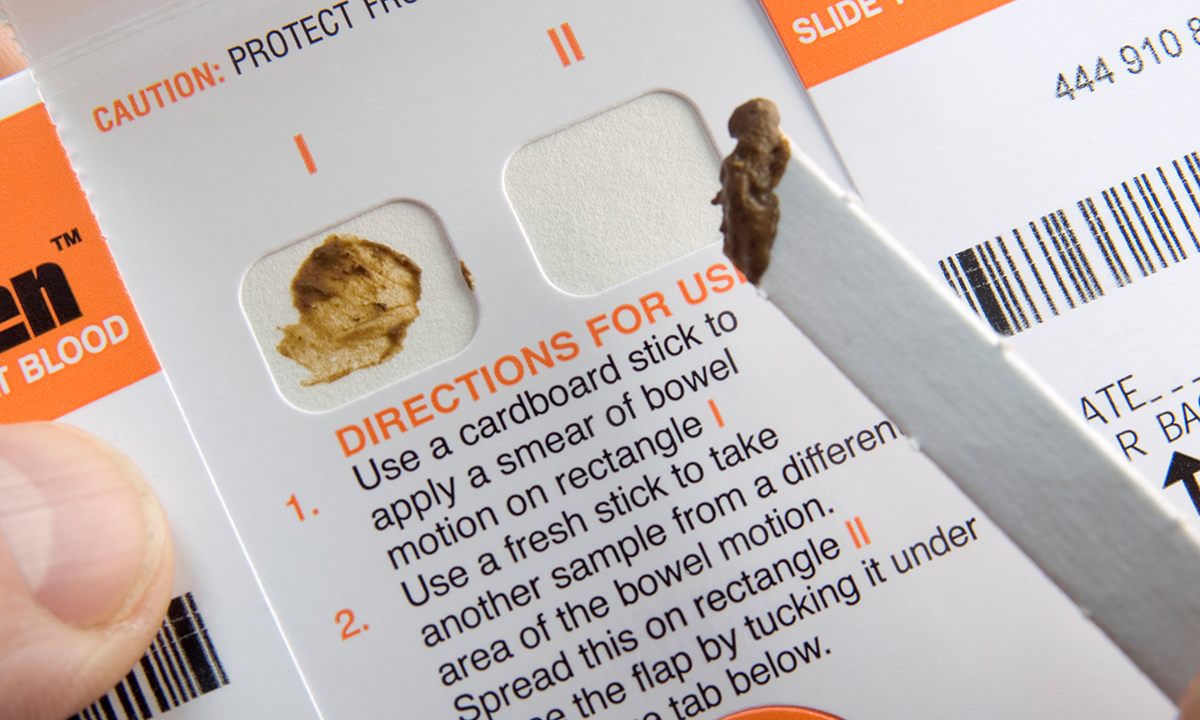SOME GPs perceive the faecal occult blood test (FOBT) as an individualised risk assessment and diagnostic tool, not a public health strategy for bowel cancer prevention, a new study reveals, but practical strategies could better engage GPs in bowel screening and help raise participation rates.
Professor David Currow, Chief Cancer Officer and CEO of the Cancer Institute NSW, told MJA InSight that GPs should be encouraged to think about the issue of bowel screening in a different way and to consider it on a population level.
“We need to think about engaging other practice staff in discussing asymptomatic bowel screening with patients, to get it on the agenda and to get patients asking questions of their GP.
“One of the key ways that GPs learn about new issues is through their peers, so putting this on the agenda at primary health care and GP conferences, or running special continuous professional development sessions is also going to be an important strategy.”
The Cancer Institute NSW funded the study, published in BMC Family Practice, which was based on interviews with 31 GPs from NSW.
The results revealed that GPs’ perceptions of screening did not always align with broader public health definitions of population screening.
While many GPs reportedly understood the purpose of population screening, notions of the role of asymptomatic screening for bowel cancer prevention were more limited. GPs also expressed concerns about the reliability of FOBT.
The authors found that the way GPs understood screening impacted their clinical practice, influencing their preferences for and use of screening tools such as FOBT. They suggested that “a greater emphasis on the preventative opportunity of FOBT screening would be beneficial, as would formally engaging GPs in the promotion of bowel screening”.
“This may assist in re-shaping how some GPs view the FOBT and utilise it in their clinical practice.”
Sydney-based GP, Dr Linda Mann, told MJA InSight that “the article makes it sound like there is one message being given to GPs, FOBT, but have you read the Gastroenterological Society of Australia guidelines?
“[They are] very confusing as to the value of broadcast screening, very encouraging of a personal approach, and possibly self-serving in that the organisation from which this comes is the same group that recurrently encourages FOBT negative patients who are worried to return for a 5-yearly colonoscopy.
“The day-to-day education of GPs is via consultants. Get them on board with the simple message, and the GPs may behave differently,” Dr Mann said.
Professor Currow said that FOBT was useful for population screening because it could detect microscopic blood in the stool, which could be an early sign of pre-cancerous changes and an indication that further testing was needed.
“FOBT is not a very sensitive diagnostic tool, however, and colonoscopy is usually required to identify the cause of symptoms. Because of this, and also because GPs often thought about ‘screening’ in a patient-focused rather than population-focused way, many GPs said that colonoscopy would be the preferred test, the gold standard in diagnosing bowel cancer.
“So, this view of screening has some important implications for practice, and sheds light on how we might engage with GPs around this issue.”
Dr Mann said that “the Dorevitch FOBT kit has a high ‘yuck’ factor compared to the more expensive versions, and we know that they had a big call-back of thousands of tests they ran wrongly.
“Personally, I support FOBT and persuade folk to pay for the private variety. Make the test comprehensible and functional, publish the method in languages other than English – the kit that I receive only has English instructions – and educate GPs from a single position, not a collection of them,” Dr Mann said.
Professor Currow said that “shifting attitudes is always a challenge, especially when we are talking to clinicians who have a busy and diverse clinical load”.
“Ultimately, for some I don’t think it will be so much of an attitude shift, but rather getting GPs to think about opportunities for prevention and the population benefits of screening.
“GPs have no doubt seen the realities of late stage bowel cancer, and we want to avoid this where possible,” he said.
To find a doctor, or a job, to use GP Desktop and Doctors Health, book and track your CPD, and buy textbooks and guidelines, visit doctorportal.

 more_vert
more_vert
Back in the 70s a program of FOBT was introduced by Rotary Clubs. The statistics they gathered, albeit not in a stringent scientific manner, gave credence to this as a very useful screening tool and, in my view was saving more lives than Pap. smears (per 100,000 tested) which were then well entrenched.
At the time Rotary faced an uphill battle to get the profession to recognise it’s value but, eventually, by dint of the weight of sheer numbers it was accepted and now, is a public health screening tool of great value. No matter the evidence, there will always be the “flat earths” out there that will take some convincing